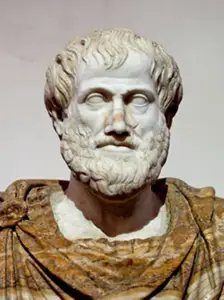Aristotle would scoff at the idea that AI can solve the loneliness epidemic

Mark Zuckerberg in the past few days suggested that AI chatbots could combat social isolation by serving as friends for people experiencing loneliness He cited statistics that the average American has fewer than three friends but yearns for as a great number of as He was close According to a description from the Survey Center on American Life about half of Americans have fewer than four close friends Zuckerberg then posited that AI could help bridge this gap by providing constant personalized interactions I would guess that over time we will find the vocabulary as a society to be able to articulate why that is valuable he added Loneliness and social disconnection are serious problems But can AI really be a answer Might relying on AI for emotional endorsement create a false sense of connection and possibly exacerbate feelings of isolation And while AI can simulate certain aspects of companionship doesn t it lack the depth empathy and mutual understanding inherent to human friendship Researchers have started exploring these questions But as a moral philosopher I think it s worth turning to a different source the ancient Greek philosopher Aristotle Though it might seem odd to consult someone who lived more than years ago on questions of modern apparatus Aristotle offers enduring insights about friendships and which ones are particularly valuable More key than spouses kids or money In his philosophical text Nicomachean Ethics Aristotle maintained that true friendship is essential for eudaimonia a Greek word that is typically translated as flourishing or well-being For Aristotle friends are not just nice to have they re a central component of ethical living and essential for human happiness and fulfillment Without friends no one would choose to live he writes though he had all other goods A solitary existence even one of contemplation and intellectual achievement is less complete than a life with friends Friendship contributes to happiness by providing emotional aid and solidarity It is through friendship that individuals can cultivate their virtues feel a sense of protection and share their accomplishments Empirical evidence seems to help the connection between friendship and eudaimonia A Pew Center research description detected that of adults in the U S say having close friends is essential to living a fulfilling life a higher proportion than those who cited marriage children or money A British survey of adults located that those who had regular interactions with a wide circle of friends were more likely to have better mental strength and be happier And a meta-analysis of nearly studies exposed that a lack of close friends can increase the vulnerability of death as much as smoking drinking or obesity Different friends for different demands But the benefit of friendship that Aristotle focuses on the preponderance is the role that it plays in the progress of virtue In Nicomachean Ethics Aristotle identifies three tiers of friendship The first tier is what he calls friendships of utility or a friendship that is based on mutual benefit Each party is primarily concerned with what they can gain from the other These might be colleagues at work or neighbors who look after each other s pets when one of them is on vacation The dilemma with these friendships is that they are often fleeting and dissolve once one person stops benefiting from the relationship The second is friendships of pleasure which are friendships based on shared interests These friendships can also be transient depending on how long the shared interests last Passionate love affairs people belonging to the same book club and fishing buddies all fall into this category This type of friendship is significant since you tend to enjoy your passions more when you can share them with another person But this is still not the highest form of friendship According to Aristotle the third and strongest form of friendship is a virtuous friendship This is based on mutual respect for each other s virtues and character Two people with this form of friendship value each other for who they truly are and share a deep commitment to the well-being and moral progress of one another These friendships are stable and enduring In a virtuous friendship each individual helps the other become better versions of themselves through encouragement moral guidance and patronage As Aristotle writes Perfect friendship is the friendship of men who are good and alike in virtue Now those who wish well to their friends for their sake are the bulk truly friends for they do this by reason of their own nature and not incidentally therefore their friendship lasts as long as they are good and goodness is an enduring thing In other words friendships rooted in virtue not only bring happiness and fulfillment but also facilitate personal upsurge and moral progress And it happens naturally within the context of the relationship According to Aristotle a virtuous friend provides a mirror in which one can reflect upon their own actions thoughts and decisions When one friend demonstrates honesty generosity or compassion the other can learn from these actions and be inspired to cultivate these virtues in themselves No nourishment for the soul So what does this mean for AI friends By Aristotle s standards AI chatbots however sophisticated cannot be true friends They may be able to provide information that helps you at work or engage in lighthearted conversation about your various interests But they fundamentally lack qualities that define a virtuous friendship AI is incapable of mutual concern or genuine reciprocity While it can be programmed to simulate empathy or encouragement it does not truly care about the individual nor does it ask anything of its human users Moreover AI cannot engage in the shared pursuit of the good life Aristotle s notion of friendship involves a shared journey on the path to eudaimonia during which each person helps another live wisely and well This requires the kind of moral maturation that only human beings who face real ethical challenges and make real decisions can undergo I think it is best to think of AI as a tool Just like having a good shovel or rake can improve your quality of life having the rake and the shovel do not mean you no longer need any friends nor do they replace the friends whose shovels and rakes you used to borrow While AI may offer companionship in a limited and functional sense it cannot meet the Aristotelian criteria for virtuous friendship It may fill a temporary social void but it cannot nourish the soul If anything the rise of AI companions should serve as a reminder of the urgent need to foster real friendships in an increasingly disconnected world Gregg D Caruso is a professor of ethics and management and director of the Waide Center for Applied Ethics at Fairfield University This article is republished from The Conversation The post Aristotle would scoff at the idea that AI can solve the loneliness epidemic appeared first on MinnPost

